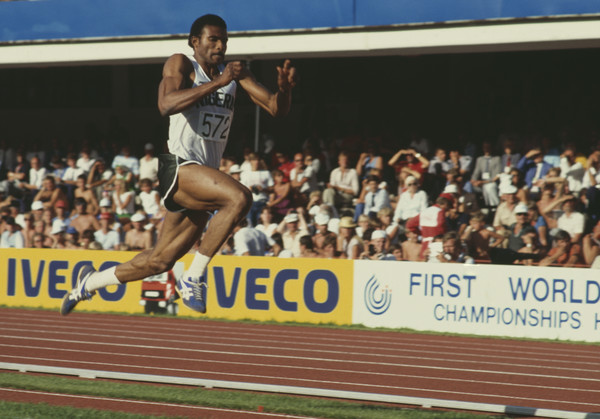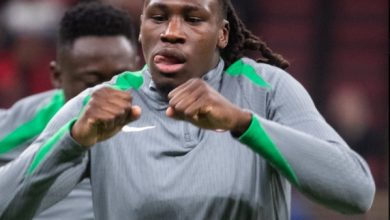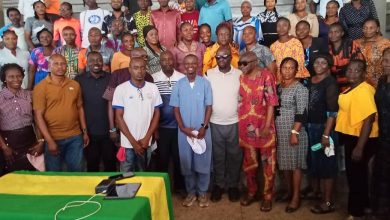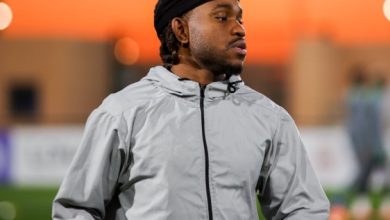Six Longest Standing Nigerian Records in Athletics

Another outdoor season is already in full swing, and Nigerians will be looking to see which records will be broken and which records will survive.
Today, courtesy Complete Sports, Sportsnow.com.ng brings you 10 long standing Nigerian records that have survived for at least 30 years and with majority of them looking to survive beyond the 2025 athletics season.
AJAYI AGBEBAKU (Triple Jump, 17.26m) – 42 YEARS
Agbebaku is the most successful triple jumper Nigeria has ever produced. He is the first out of only five Nigerian athletes (men and women) to win an individual medal at track and field’s greatest athletics showpiece, the World Championships.
This feat he accomplished 42 years ago in Helsinki, Finland where he jumped 17.18m to win a bronze medal.
A month earlier, he had hopped, stepped and jumped into the record books as Africa and Nigeria’s record holder in the event courtesy his 17.26m gold-medal winning jump at the World University Games in Edmonton, Canada.
The feat stayed for 24 years as African record before it was broken by Morocco’s Tarik Bouguetaib (17.37m) in July 2007.
Agbebaku however retains his status as Nigeria’s record holder 37 years after he achieved the feat. Only the duo of Tosin Oke (17.23m) and Joseph Taiwo (17.22) managed to hit the 17.20 mark.
CHRISTIAN OKOYE (Hammer Throw, 66.92m) — 39 YEARS
Okoye bestrode the Nigerian throws’ scene like a colossus in the early 1980s. He was a national Shot Put, Discus and Hammer Throw champion. He was the only man since 1980 to win in all three disciplines.
His star shown brightly and brilliantly when he gained admission to Azusa Pacific University in 1982. He is arguably one of the most celebrated athlete in Azusa Pacific history.
He was a 9-time National Association of Intercollegiate Athletics (NAIA) champion in track and field and led the University to four straight NAIA Outdoor Track and Field national championship titles (1983-86).
He was the first person in NAIA history to win the Discus for four years, setting the NAIA record in the process with a heave of 63.5m in 1985.
In 1986, he was named the Most Outstanding Performer of the NAIA outdoor championship meet after winning the Discus and the Shot Put.
Okoye’s 66.92m throw in March 1986 at Westwood, Los Angeles, USA remains the second longest standing Nigerian track and field record till date.
INNOCENT EGBUNIKE (400m, 44.17) — 38 YEARS
When Egbunnike improved his personal best to 44.50 seconds at the Weltklasse meeting in Zurich, Switzerland in August 1986, breaking the 44.30 seconds African record set by Gabriel Tiacoh of Cote D’Ivoire early that year seemed an achievable target.
The Nigerian however had to wait till the following year before he could write his name in history books as the fastest quarter miler in Africa for the second time.
He first set a new African record in June 1985 when he ran 44.66 seconds to break the barely three years old record (44.76) set by Sudan’s Hassan El Kashief.
In 1987, Ejima, as he was fondly called broke the African nay Nigerian 400m record twice. First was at the African Games in Nairobi where he ran 44.23 seconds to defeat home boy and one of the favourites for the title, David Kitur to win the gold medal.
Ten days later, Egbunnike returned to the Letzigrund in Zurich and smashed his own African record, running 44.17 seconds to become the first African man to break 44.20 in the event.
The record stood for 19 years before a certain Gary Kikaya ran seven hundredth of a second faster to set the record at 44.10 for eight years.
Thereafter, Botswana’s Isaac Makwala set a new 44.01 African record. South Africa’s Wayde Van Niekerk later broke it thrice to become Africa’s fastest 400m runner ever at 44.03 seconds.
Ejima’s 44.17 seconds run is however still the fastest ever run by a Nigerian till date.
YUSUF ALI (Long Jump, 8.27m) – 36 YEARS
The long jump may have become the property of South Africa who has produced the top three biggest jumpers in the African all-time list but Nigeria was once the king of the horizontal event, dominating in the continent in terms of quality of performance and medals at major continental and international events.
In the 1970 and 1980s, Nigeria’s dominance in the event was unassailable.
And one of the jumpers who brought Nigeria to the forefront of the event in Africa is Yusuf Ali.
‘Skippo’ as he is fondly referred to is arguably the greatest long jumper Nigeria has ever produced. He is a World Championships (8th, 1983) and Olympics (9th, 1984) finalist in the event and a silver medalist at the World Athletics Continental Cup in 1989.
Ali’s 8.27m gold medal-winning leap at the long jump pit of the National stadium, Surulere, Lagos at the African Championships was two centimeters better than the 8.25m African record set by compatriot, Paul Emordi two years earlier in Los Angeles, USA.
The record stayed for eight years as Africa’s best before Cote D’Ivoire’s Cheikh Tidiane Toure leapt farther (8.46m) in June 1997. It however remains the longest leap in Nigeria’s long jump history till today.
MOHAMMED ABBAS (Marathon, 2:16:06) – 35 YEARS
Thirty-five long years ago, a Nigerian ran inside two hours 20 minutes in the marathon. Thirty-five long years after, Nigerian athletes are struggling to break tw hours, 20 minutes. Abbas, a military man proved Nigeria has the athletes to run world class times in the 42.195km race. Abbas’ time at the time was truly world class.
Today, distance running generally and the marathon in particular has been abandoned by the regulatory authorities for sports generally and track and field in particular.
Abbas ran 2:16:06 on November 11, 1990 in Lagos.
ADEWALE OLUKOJU (Discus Throw, 67.80m) – 34 YEARS
No one has dominated the discus throw in Nigeria the way Olukoju did in the late 1980s and the 1990s.
A top eight once at the World Championships and silver medalist at the World University Games and the Commonwealth Games, Olukoju set his 67.80m national record in May 1991 at the Modesto Relays in Modesto, United States. No Nigerian has hit the 67m mark since then.





l am very surprised that my triple jump record has stood there for 42years. Nigerian Track and Field is not progressing at all after so many years. Nigeria have talents, but the country does not have a plan on how to develop them. How can we develop these young athletes in Nigeria?
This is where you need people with knowledge, skills, and the know how to come and put a plan together for the country. This is not a fly by night plan. It will take a lot of work, effort, and Government long term support. For example, Delta State hosting the National Youth Sport is an example. The Federal Government should encourage by supporting each State to have some kind of youth sports.